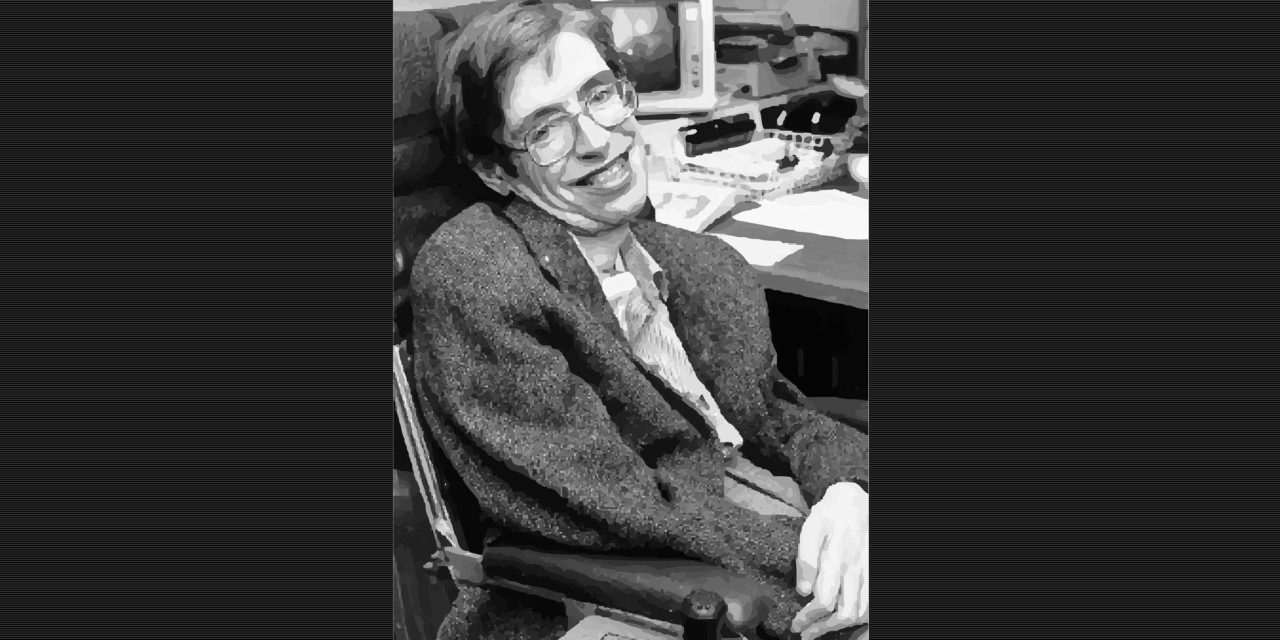Warming Up!
Chit-Chat
A strange truth – ‘Handicapped are those who refuse to take up challenges, even with all their senses and physiology in perfect condition.’
– Understand and discuss the above truth
What it means is that we should not consider those with physical disabilities as people who are handicapped. Those who are physically fine yet do not have it in them to take up challenges or work hard in their lives are the ones who are truly handicapped.
– How can you encourage such people to change and become confident? Discuss at least 4 to 5 ways you can do the above.
1) Firstly we should treat everyone with respect that they deserve. With respect comes the confidence to communicate and do things.
2) We can motivate them by telling success stories of others similar to them and what can be achieved with hard work.
3) We can show them the merits of a never give up attitude.
4) Show them how others less fortunate than them have gone ahead because of their positive attitude and ability to take risks.
More Questions from Warming Up!
1. There are pleasant and polite ways of referring to people with physical and mental disabilities. Fill in the table below:
1) Blind – Visually challenged.
2) Deaf – Hearing impaired.
3) Dumb – Speech impaired.
4) Mad – Mentally challenged.
5) Lame – Physically disabled
2. Read the beginning and complete the story in your own words:-
Sumit, the son of a shoe maker, was a highly intelligent student in a municipal school. His Maths teacher called him ‘Einstein’, for he was brilliant in Maths. He loves Maths. Sumit wanted to study further after SSC, however he suffered from Polio and…..
Now, continue the story with a favourable / positive ending.
He suffered from polio and had a very tough time commuting between his house and his college. To make matters worse, Sumit had always been teased by his schoolmates because of his disability and he was worried how people would react if he went to college. In his heart, he really wanted to study and become someone important, someone who brings positive change in society. Unfortunately though due to the continuous glare of others, he had started feeling apprehensive. Luckily for Sumit, his parents were always supportive of his dreams and never let his disability come in the way of providing things for him. Even his school Maths teacher often visited him and would tell Sumit how he was the best student in the class the teacher had ever seen. He told him not to worry about others as of now. If Sumit continued his hard work, people would automatically respect him and someday would be proud to be associated with him. Encouraged by this, Sumit went ahead in his studies. With great difficulty he travelled to his college daily and worked as hard as he could. His classmates were in awe of his dedication and his abilities in Mathematics. Just as the teacher predicted, Sumit went on to do great things and became one of the most respected students in the college and worked with some of the best minds in the world to solve complex equations in Physics.
From the main chapter pages.
1. What did Stephen Hawking’s parents fail to know about him?
Ans: Stephen Hawking’s parents failed to know that one day he would be hailed as one of the greatest scientists of this century.
2. What is courage?
Ans: Courage is that quality which makes people not lose heart when faced with a great calamity.
3. Where was Stephen Hawkings sent for studying Mathematics?
Ans: Stephen Hawkings was sent to University of Oxford for studying Mathematics.
4. What happened when he was seventeen?
Ans: At the age of seventeen, Stephen Hawking noticed he was becoming increasingly clumsy and even fall down for no reason.
5. What did the family doctor diagnose?
Ans: The family doctor diagnosed Stephen Hawking with an extremely rare disease known as ALS or LOU Gehrig’s disease.
6. What did he study about to get his Ph.D.?
Ans: Stephen Hawking studied about Black Holes to get his Ph.D.
7. Inspite of no control on his body, how did Hawking express his ideas?
Ans: Stephen Hawking used his finger and a computer to help express his ideas.
8. What does the writer say about the books authored by Dr. Hawking?
Ans: The writer says that books authored by Stephen Hawking deal with his awesome ideas keeping a layman in mind. His writing is full of wit and humour. His style is so lucid that non-scientists can also understand him.
English Workshop
1. Match the following.
Direct answers given below:
1) Galileo – d) the greatest scientist 300 years before Hawking.
2) Dr. Stephen Hawking – c) the greatest scientist of this century.
3) Black Holes – a) the concept which helped Stephen to get his Ph.D.
4) Stephen’s favourite subjects – b) music and mathematics.
2. Complete the following web-chart containing the qualities of Dr Stephen Hawking.
Qualities of Dr Stephen Hawking:
– Courageous
– Witty
– Optimistic
– Intelligent
– Brave
– Mischievous
3. Arrange the following statements according to the occurrence in the life history of Dr Stephen Hawking.
d) Stephen was born on 8th January, 1942 and then grew up like an average child and a normal teenager.
a) At the age of 17, Stephen noticed that he fell down a couple of times for no reason.
g) Stephen was diagnosed with a rare disease – ALS or LOU.
e) The disease worked it way into Stephen’s body and left him disabled.
f) Stephen decided to continue his doctoral research work with renewed vigour.
h) Though confined to a wheelchair he worked on computer and expressed his thoughts.
b) He became a fellow of the Royal Society and a member of the US National Academy of Science.
c) He believes that in the next millennium, science will discover the core secrets of the universe.
4. Homographs – Pairs of words that are spelled and pronounced the same, but have different meanings, in different contexts.
For example: watch – observe, watch – device that shows time.
Use the following words in two different contexts.
a)
Couple: two or a pair.
Couple: Two people in a relationship, marriage.
b)
Mind: your brain.
Mind: not to bother about something.
c)
Space: area
Space: Outside of Earth
d)
Sound: Noise
Sound: Someone who has a stable mind.
e)
Left: left side
Left: went away
In your notebook, make pairs of sentences with the above homographs.
a)
I ate couple of mangoes.
They make a beautiful couple.
b)
My mind is full of wonderful ideas.
I hope you do not mind me working here.
c)
I have a lot of space in my room.
I am fascinated by the wonders of space.
d)
The sound of the speakers did not seem right.
Raj was able to complete the task thanks to his sound judgement.
e)
My left hand is paining today.
My parents left for the party an hour ago.
5. Use the following words/phrases in your own sentences.
a) quirk of fate: He wasn’t able to reach for the interviews due to a quirk of fate.
b) confined to: I was confined to my room due to my illness.
c) Exaggeration: Raj speaks about his achievements with lot of exaggeration.
d) an epitome of: My parents are an epitome of good values.
e) millennium: I wonder what humans will achieve in the next millennium.
6. Expand the given themes – Make use of the support / hints.
a) If you fall ill during your final exam – First step, what to do, support/help.
If I fall ill during my final exam, the first thing I will ensure is not to panic. I will talk to my parents and ask them to take me to a doctor. Depending upon the doctor’s advice, I will take medicines and eat proper food so that I can recover as soon as possible. I will also ask for the doctor’s advice on how I can recover on time for my exams. Throughout my illness, I will try to study whenever possible and never lose hope.
b) If you meet a disabled person who needs help – Act/behave, Contact whom?
If I meet a disabled person who needs help, I will firstly do whatever I can to support the person. There may be issues that I may not be able to handle. In such a situation, I will try to take advice of my parents. I will also check if there are any local NGOs that can help disabled people in their daily lives. Most important, I will talk to the disabled person, be their friend and assure them that all help will be provided.
c) If you friend is in trouble – Gestures/body language, patience/tolerance.
If my friend is in trouble, I will try to find out what is the exact situation and how he can get out of it. I will keep calm and try to be positive so that my friend does not feel scared. I will patiently hear his problems and at the same time, ask him to be patient as over time, all troubles can pass. If I take my friend to appropriate people like teachers, parents and other relatives to see if they can help with his situation.
d) If you meet a great person like Dr Stephen Hawking – Face/handle/overcome/succeed/accomplish
If I met a great person like Dr Stephen Hawking, I would try to talk and learn from him about his life. I would take inspiration from all the achievements they have attained. I would definitely ask them how they overcame the obstacles in their lives. It would be great to find out what their advice would be to achieve success and how to remain positive even during bad times. Of course I would congratulate them on their achievements and tell them how they have inspired me to do well in life as well.
7. You happen to meet a successful person who is a disabled. Write an imaginary dialogue between you and him/her. You can take support of the hints provided.
a) introduction/welcome/greetings
b) congratulating / honouring
c) cause / reason for the disability
d) decision/plan/organization/implementation
e) idols in life.
f) parents/friends – support if any.
g) success stories / accomplishments
h) conclusion/final message if any.
Myself: Hello Mr. Patel. How are you? It is such a pleasure to see you here.
Mr. Patel: I am going well, thank you. I am excited as well to attend this event. Reminds me of my younger days.
Myself: You are such an inspiration for me. I have read all your books. I feel really motivated when I read about you. Sir, please accept my heartiest congratulations on all of your achievements.
Mr. Patel: Thank you. My achievements are all results of a positive attitude. That is the only lesson I would like to provide to my friends, students and others who read about me. A positive attitude can overcome any obstacles in life.
Myself: Sir, if I may ask, you are wheelchair bound but in childhood, you used to walk and run around. What had happened that you lost your ability to walk?
Mr. Patel: You see, when I was just thirteen, I met with an accident on the road. Unfortunately due to the accident, my spine got affected and I lost all feelings below my hips. Hence I got wheelchair bound since my teenage years.
Myself: That is such a pity. How did you remain positive during such tragic times? Did you not feel any negativity or feel low?
Mr. Patel: Of course I did. It is normal to feel bad. However, you should not let that feeling linger for too long. I took the decision that either I could cry over my situation and do nothing or be positive and genuinely achieve something great in my life. I am glad I took the latter option. As you can see, things turned out quite well for me.
Myself: Sir, do you have an idols who have inspired you?
Mr. Patel: My idols have always been my parents. They have supported me throughout my life and they are the ones I look up to the most.
Myself: That is so nice to hear. My parents are supportive of me as well. Besides your parents, were there any others who supported you in life?
Mr. Patel: I have been lucky to have really nice teachers all my life. They have always encouraged me to excel and not let me disability come in the way of what I can truly achieve.
Myself: Yes, having great teachers is so important. Sir, what are most proud of in your life considering you have so many accomplishments?
Mr. Patel: Honestly, what I am proud of the most is that I have lived every moment in the present and not let anything, whether it is my disability or other failures come in the way of enjoying my life. I have always remained positive and that has helped me to go ahead no matter what.
Myself: It was such a pleasure to meet you sir. I wish there was more time to talk. I will never forget meeting you. Thank you for being such an inspiration.
Mr. Patel: It was a pleasure meeting you as well. You seem like a very enthusiastic and cheerful person. Always remain this way and remember to remain positive and smile.
Language Study:
1. a) Complete the following word chain of adjectives.
Cruel -> lengthy -> young -> gorgeous -> sweet
b) Complete the following word chain of nouns.
Medicine -> engineer -> ring -> glass -> sea
c) Complete the following word chain of verbs.
Grow -> wed -> dance -> enjoy -> yell
d) Complete the following word chain any way.
Physics -> small -> lamp -> paint -> train
2. A) Convert the following to Exclamatory sentences of the same meaning.
a) Dr Hawking is a very humble man
Ans: How humble a man is Dr Hawking!
What a humble man Dr. Hawking is!
b) He was very clumsy.
Ans: How clumsy was he!
c) He was very simple and intelligent.
Ans: How simple and intelligent was he!
d) Courage is a truly wonderful thing.
Ans: How wonderful is courage!
What a wonderful thing courage is!
B) Convert the following to Interrogative question form.
1) The prognosis was bad.
Ans: Wasn’t the prognosis bad?
2) Stephen decided to continue his research.
Ans: Didn’t Stephen decide to continue his research?
3) There are many people who display exemplary courage.
Ans: Aren’t there many people who display exemplary courage?
4) His mind would soar up into space, like light.
Ans: Wouldn’t his mind soar up into space like light?






Please 2.5 ka chit chat and english workshop
Please 1.1 ka chit chat and english workshop
Sahi
Nice answers